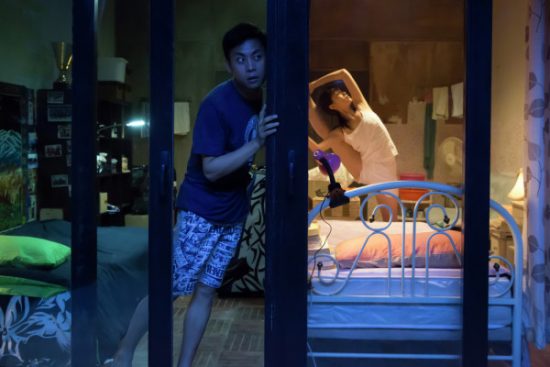TIFF Review: The Promised Land
Ling Ai (Wang Jiajia) returns to her hometown after living in Beijing where she must come to terms with the past and attempts to start her life anew.
After a long absence living in the big city, Ling Ai returns to her hometown to discover that nothing has remained static for those the ballet dancer had left behind; her childhood sweetheart is married and her widowed father has remarried. Ling Ai rents rooms in her family house where she meets a tenant who is a former hockey player turned coach; a love affair is sparked between them. Looming over the relationship is the resentment the daughter feels toward her father who harbours no such feelings toward his child.
From the first shot the viewer realizes that a cinematic veteran is behind the camera as the angles, composition and framing are stunning and have an observatory presence. There are clever tracking sequences such as the welcome home dinner and leaving the bus to walk the city streets. Some inspired moments are the courtship scene which involves listening to and knocking on a wall that separates the two rooms as well as wide shot involving piano playing and dancing on a bed.
Warm and cool colours help to separate the different rooms placed within the same shot. Piano music is key part of the score as it expresses underlying emotions in a simple and effective fashion. As much as the love story between the young couple gets most of the screen time, the real heart of The Promised Land is whether there can be reconciliation between the alienated father and daughter. He Ping has ably transitioned from making sword fighting period epics such as Warriors of Heaven and Earth (2003) to create a contemporary tale that is subtle and alluring.
Trevor Hogg is a freelance video editor and writer who currently resides in Canada; he can be found at LinkedIn.











